Venezuela’s crackdown
A slow-motion coup
The authoritarian regime is becoming a naked dictatorship. The region must react
 VENEZUELA’S “Bolivarian” regime is lurching from authoritarianism to dictatorship. On February 19th it arrested the elected mayor of metropolitan Caracas, Antonio Ledezma. Then it moved to expel Julio Borges, a moderate opposition leader, from the National Assembly—a fate already suffered by his colleague, María Corina Machado, ejected last year. Leopoldo López, another opposition leader, has been in jail for a year and is now on trial. Almost half the opposition’s mayors now face legal action. The regime’s favourite charge to level at hostile politicians is plotting to overthrow the government, often in conspiracy with the United States. But it is the president, Nicolás Maduro, who is staging a coup against the last vestiges of democracy. Venezuelans call it an autogolpe, or “self-coup”.
VENEZUELA’S “Bolivarian” regime is lurching from authoritarianism to dictatorship. On February 19th it arrested the elected mayor of metropolitan Caracas, Antonio Ledezma. Then it moved to expel Julio Borges, a moderate opposition leader, from the National Assembly—a fate already suffered by his colleague, María Corina Machado, ejected last year. Leopoldo López, another opposition leader, has been in jail for a year and is now on trial. Almost half the opposition’s mayors now face legal action. The regime’s favourite charge to level at hostile politicians is plotting to overthrow the government, often in conspiracy with the United States. But it is the president, Nicolás Maduro, who is staging a coup against the last vestiges of democracy. Venezuelans call it an autogolpe, or “self-coup”.
Hugo Chávez, who created and presided over the Bolivarian state-socialist system until his death in 2013, was repeatedly elected by Venezuelans, thanks to windfall oil revenues and his rapport with the poor. He took his majority as a mandate to squeeze the life out of Venezuelan democracy, seizing control of the courts and the electoral authority, and suppressing opposition media. Latin America’s governments acquiesced partly because they acknowledged his popular support.
Mr Maduro, though, lacks Chávez’s charisma and political skills—and his luck with the oil price. Crackpot economic policies have brought food shortages, soaring inflation and rising poverty. Popular support for the president and government has collapsed to around 20%. In a fair contest, the opposition would be likely to win parliamentary elections due this year. It could then hold a referendum in 2016 to recall Mr Maduro.
Time to speak up
In one respect—repressing his opposition—Mr Maduro exceeds his former boss. Chávez let rivals challenge him in a free-ish vote. Mr Maduro locks them up. On February 24th a 14-year-old boy at a demonstration against the government was killed by a policeman’s rubber bullet. The policeman was arrested. But such incidents raise the likelihood that the confrontation between the regime and its critics will turn violent, providing an excuse for still more repression. To that end, the arrest of Mr Ledezma may have been intended to provoke a reprise of last year’s demonstrations against the government, in which 43 people on both sides of the conflict were killed. Those served only to strengthen Mr Maduro.
The prime responsibility for avoiding such violence lies with Mr Maduro. But both the opposition and Venezuela’s neighbours have a role in trying to keep the peace and rescuing democracy. Faced with the regime’s drift towards lawlessness, the opposition’s response should be to redouble its commitment to the rule of law. Mr Ledezma has called for non-violence. The opposition is pressing the electoral authority to set a date for the parliamentary vote.
The opposition deserves help. For too long Latin America has tolerated Venezuela’s abuse of democratic norms. The latest outrages have provoked expressions of concern from Brazil, the Organisation of American States and others. They must do more. They should demand the release of Mr Ledezma and Mr López and call for guarantees that the election will be fair. If they fail to get them, they should suspend Venezuela from regional groupings, such as the South American Union, which require their members to be democracies. The threat of becoming a pariah might just give Mr Maduro pause.

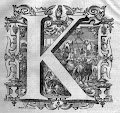































.jpg)







































.jpg)

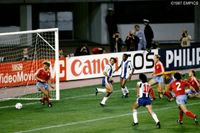
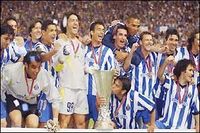



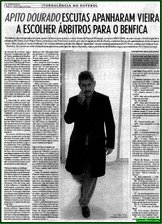

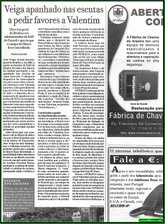
0 comentários:
Enviar um comentário